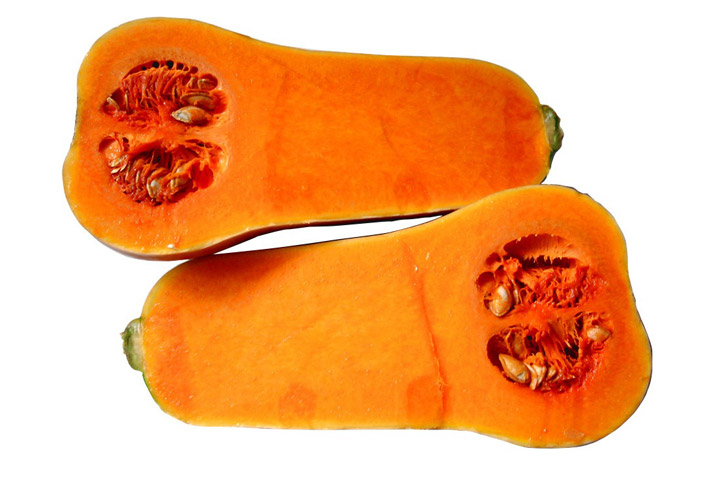
Squash-Health Benefits
Some vegetables offer different nutrients than others. Some, however, have truly impressive amounts, which is the case with squash: 457% of the daily value per serving in vitamin A – more than pumpkin and possibly more than any other vegetable. Vitamin A is a powerful antioxidant, essential for good skin, vision, and mucous membranes. What’s more, polyphenolic carotenoid/flavonoids such as betacarotenes, cryptoxanthin-ß, and lutein convert to vitamin A in the body for a “one-two punch” of protection. Research reveals that vitamin A may protect against the risk of lung and mouth cancers.
You get a 42% daily value in vitamin C in every cup of squash, providing infection protection, among other things. The potassium and manganese content in squash is good, too, with 17% and 18% daily values respectively, along with healthy amounts of vitamins E, B, B6 (pyridoxine), thiamin, niacin, folate, calcium and magnesium, riboflavin, niacin, thiamin, and pantothenic acid.
Although squash is considered by some to be a starch, not all starch are created equal. Fewer than 15% of the calories in winter squash come from fat, compared with almost 90% of the calories in walnuts, for instance. With winter squash, we have a fantastic anti-inflammatory food opportunity in which we can get a valuable amount of our anti-inflammatory omega-3s. This veggie is also cholesterol-free.
Studies on Squash
Squash, which has a high level of carotenes per serving, has built-in anti-cancer benefits. While studies show carotenoid concentrations in blood are biomarkers of fruit and vegetable intake offering cancer protection, one study in particular explored a possible association between carotene presence and breast cancer. Researchers concluded that among six carotenes tested, only β-carotene intake was significantly associated with reduced breast cancer risk.1
Squash seeds provide lots of good-for-your-heart dietary fiber and unsaturated fatty acids, along with protein, minerals, and vitamins. Squash seeds also contain tryptophan, an amino acid that converts to gamma-aminobutyric acid (GABA), which is the main inhibitory neurotransmitter that concentrates (no pun intended) on motor decision speed.2 The tryptophan in squash seeds also may be crucial in regulating the endocrine pancreas,3 which in turn regulates the blood glucose in the body.
To bake your own squash seeds, separate them from the squash, spread them out on a cookie sheet, and toast them lightly at 160-170°F for 15 to 20 minutes. The low temperature decreases damage to healthy oils like linoleic acid (polyunsaturated omega-6 fatty acid) and oleic acid – the same non-hydrogenated substance found in olive oil.
Summary
Beta-carotene is the star in squash, providing powerful antioxidants. The colorful hues in squash and other vegetables hint at this attribute, which is important for blocking and zapping harmful free radical activity. This nutrient turns into vitamin A in the body, which is another desirable benefit for healthy skin, bones, vision, and immunity from disease and infection.
Bake squash with butter, salt, and pepper to get the true essence of this lovely garden offering. It also makes one of the most delicious soups; try it baked and processed with a softened Granny Smith apple, onion, and a large carrot – yum!
Related:
Butternut Squash and Sweet Potato Soup







Leave a Reply